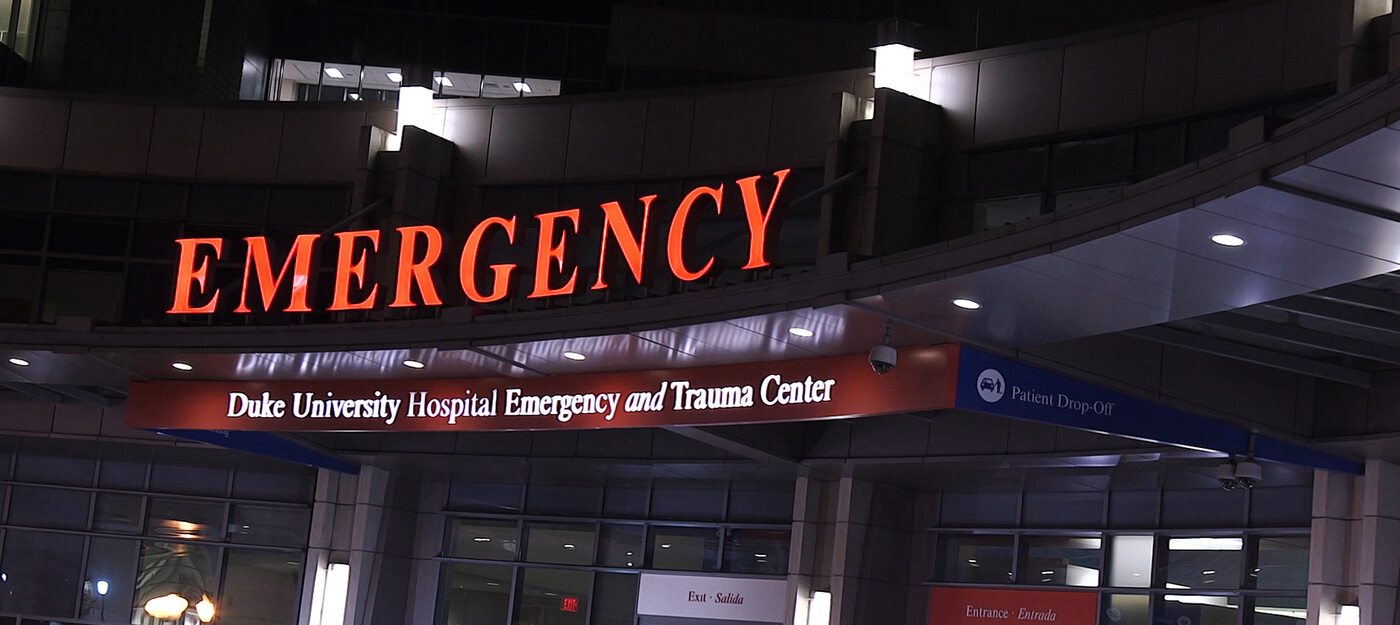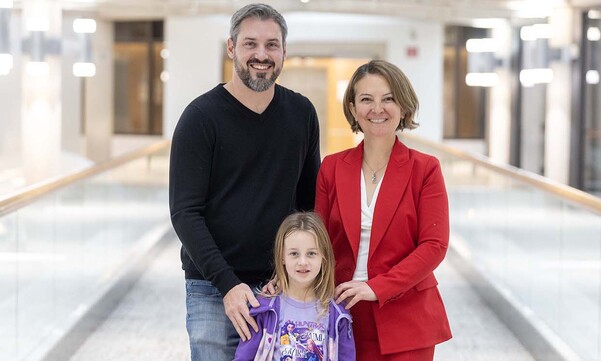A hospital’s emergency department is the place to go when you have a life-threatening illness or injury, or a medical issue that can’t wait. Are there things you should know before you go?
If you’re having a health emergency, Duke Emergency Medicine Specialist Dr. Charles Gerardo, MD, offers tips to ensure you get the most benefit from a visit to the emergency department.
Is It an Emergency?
If you’re not sure whether your situation is an emergency, contact your primary care provider first. They can recommend whether you should go to the emergency department, an urgent care center, or the doctor’s office. If your health plan has a 24-hour nurse line, that’s another option for getting advice on whether you need emergency care.
Serious Symptoms? Don’t Drive. Call 911.
If you have an emergency or are unable to reach your doctor, come to the emergency department. We’re open 24 hours a day, every day of the year. If you have serious symptoms, such as chest pain, don’t delay—and don’t drive. Call 911. Emergency medical services (EMS) can start lifesaving treatment while you’re on your way here.
We See the Sickest People First.
How quickly we’ll take care of you depends on the severity of your illness. If you’ve been in a serious car accident or if you’re having a stroke or heart attack, we’ll take care of you before people who have more minor concerns.
You'll Meet a Lot of Medical Professionals.
A whole team of professionals will be involved in your care. During your visit, you may see:
- A triage nurse who evaluates how urgent your condition is
- A doctor or physician assistant who does an initial screening exam
- An emergency technician who draws your blood
- A radiology technician who performs X-rays or CT scans
- The doctor responsible for determining what care you need
- One or more nurses responsible for providing your care
- A consulting doctor or other health care professional
Be Prepared to Repeat Your Story.
You may have to retell your story to each new team member you meet. It’s not that we weren't listening the first time. We always want to verify that we have the story straight by getting it directly from you. This helps us improve your care.
We Want You to Feel Better.
We’ll do everything we can to make you feel better. This may be a prescription for medication that will help with your symptoms or illness. Or it may just be reassurance that everything will be OK and instructions for taking care of yourself or your loved one at home. Either way, we consider it time well spent.
We’ll Offer What’s Most Likely to Help You.
All treatments and tests have potential risks and benefits. If something isn’t likely to help you -- for example, antibiotics won’t cure a viral infection -- we won’t recommend it. If it's something for which the risks are greater than the potential benefit -- for example, a CT scan for a minor head injury -- we won’t recommend that, either.
You May Need to Follow Up with Other Doctors.
Our doctors are trained to handle a wide variety of emergent situations, but we’re not experts in all medical specialties. That means we may not be able to give you a clear diagnosis before you go home. What we can usually do is rule out the worst possibilities and direct you to the right type of expert for follow-up.
A Tip to Avoid Emergency Department Visits:
Having a good relationship with your primary care doctor may help you stay out of the emergency department. This is especially true if you have a complex or chronic condition. Ask your doctor what possible complications, medication side effects, or other issues you should look out for -- and how to handle those situations if they come up. Also ask whether the practice has same-day appointments, after-hours coverage, or other arrangements for handling unexpected concerns.




